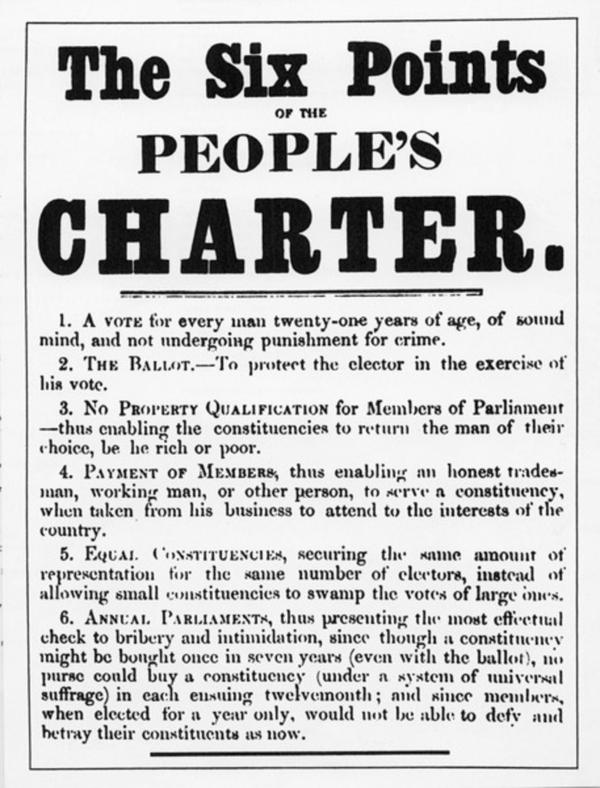
People’s Charter noun
- See under Chartism.
Chartism [chahr-tiz-uh m] noun
- the principles or movement of a party of political reformers, chiefly workingmen, in England from 1838 to 1848: so called from the document (People’s Charter or National Charter) that contained a statement of their principles and demands.
Origin of Chartism 1830–40; chart charter (now obsolete) + -ism; replacing Charterism; see charter Related formsChart·ist, noun, adjective British Dictionary definitions for people’s charter Chartism noun
- British history the principles of the reform movement in Britain from 1838 to 1848, which included manhood suffrage, payment of Members of Parliament, equal electoral districts, annual parliaments, voting by ballot, and the abolition of property qualifications for MPs
Derived FormsChartist, noun, adjectiveWord Origin for Chartism named after the People’s Charter, a document which stated their aims Word Origin and History for people’s charter Chartism n.
1839 in English political history, in reference to the reform party active 1836-48, from “The People’s Charter,” which contained their principles. Related: Chartist (1838).
 Liberal Dictionary English Dictionary
Liberal Dictionary English Dictionary